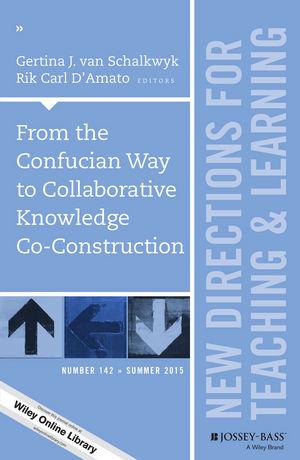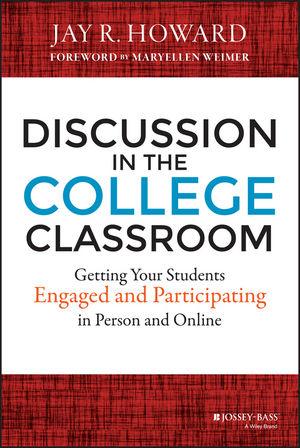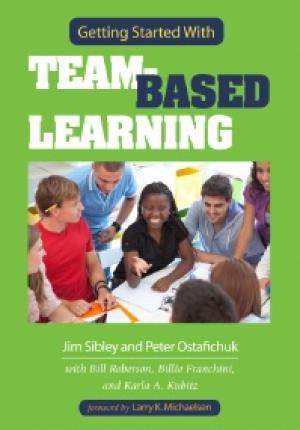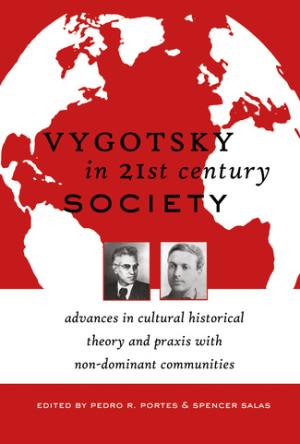Resources
Field Education supervisors from 6 schools report on different learning community opportunities they facilitated among a selected group of supervisors, regarding each as a “community of practice.”

Click Here for Book Review Abstract: Sharing and engaging in interactions and discussion as required for collaborative teaching and learning can be a foreign concept to students coming from Asia or growing up in an Asian family. As such, this first volume in a two-volume edition helps lecturers, educators, and teachers create collaborative teaching and learning experiences with multicultural adult learners in higher education. Topics include: - assessment and evaluation techniques that focus on collaborative teaching and learning with diverse students - students’ cultural beliefs and strategies for outcomes-based collaborative teaching and learning in Asia, and - an understanding of the unique learning motivations of contemporary Asian students. This is the 142nd volume of this Jossey-Bass higher education series. It offers a comprehensive range of ideas and techniques for improving college teaching based on the experience of seasoned instructors and the latest findings of educational and psychological researchers. (From the Publisher)

Click Here for Book Review Abstract: Second only to lecture as the most widely used instructional strategy, there's no better method than classroom discussion to actively engage students with course material. Most faculty are not aware that there is an extensive body of research on the topic from which instructors can learn to facilitate exceptional classroom discussion. Discussion in the College Classroom is a practical guide which utilizes that research, frames it sociologically, and offers advice, along with a wide variety of strategies, to help you spark a relevant conversation and steer it toward specific learning goals. Applicable across a spectrum of academic disciplines both online and on campus, these ideas will help you overcome the practical challenges and norms that can undermine discussion, and foster a new atmosphere of collaborative learning and critical thinking. Higher education faculty are increasingly expected to be more intentional and reflective in their pedagogical practice, and this guide shows you how to meet those expectations, improve student outcomes, and tackle the perennial problem of lagging engagement. Thoroughly grounded in the scholarship of teaching and learning, this book gives you concrete guidance on integrating discussion into your courses. You'll learn to: - Overcome the challenges that inhibit effective discussion - Develop classroom norms that facilitate discussion - Keep discussion focused, relevant, and productive - Maximize the utility of online student discussions The kind of discussion that improves learning rarely arises spontaneously. Like any pedagogical technique, careful planning and smart strategy are the keys to keeping students focused, engaged, and invested in the conversation. Discussion in the College Classroom helps you keep the discussion applicable to the material at hand while serving learning goals. (From the Publisher)

Click Here for Book Review Abstract: This book is written for anyone who has been inspired by the idea of Team-Based Learning (TBL) through his or her reading, a workshop, or a colleague’s enthusiasm, and then asks the inevitable question: how do I start? Written by five authors who use TBL in their teaching and who are internationally recognized as mentors and trainers of faculty making the switch to TBL, the book also presents the tips and insights of 46 faculty members from around the world who have adopted this teaching method. TBL is a uniquely powerful form of small group learning. It harnesses the power of teams and social learning with accountability structures and instructional sequences. This book provides the guidance, from first principles to examples of practice, together with concrete advice, suggestions, and tips to help you succeed in the TBL classroom. This book will help you understand what TBL is and why it is so powerful. You will find what you need to plan, build, implement, and use TBL effectively. This book will appeal to both the novice and the expert TBL teacher. (From the Publisher)
Vanderbilt University’s very helpful and brief overview of metacognition (“thinking about one’s thinking”) with helpful references throughout and good ideas for helping students put it into practice.
Approaches to classroom instruction have evolved considerably over the past 50 years. This progress has been spurred by the development of several learning principles and methods of instruction, including active learning, student-centered learning, collabora- tive learning, experiential learning, and problem-based learning. In the present paper, we suggest that these seemingly different strategies share important underlying characteristics and can be viewed as complimentary components of a broader approach to classroom instruction called transformational teaching. Transformational teaching involves creating dynamic relationships between teachers, students, and a shared body of knowledge to promote student learning and personal growth. From this perspective, instructors are intel- lectual coaches who create teams of students who collaborate with each other and with their teacher to master bodies of information. Teachers assume the traditional role of facilitating students’ acquisition of key course concepts, but do so while enhancing students’ personal development and attitudes toward learning. They accomplish these goals by establishing a shared vision for a course, providing modeling and mastery experiences, challenging and encouraging students, personalizing attention and feedback, creating experiential lessons that transcend the boundaries of the classroom, and promoting ample opportunities for preflection and reflection. We propose that these methods are synergistically related and, when used together, maximize students’ potential for intellectual and personal growth.
This outline is helpful for understanding the different kinds of knowing required for college learning. It is created by Mark Unno (who teaches Buddhism at the University of Oregon) and based on a study done by Mary Belenky and other scholars, .

Click Here for Book Review Abstract: Service-learning in higher education combines students' academic coursework with their voluntary work, enhancing students' learning and benefiting the community. The key to unlocking the connections between the theory and practice of service-learning is critical reflection, which is examined in this book along with students' academic reflective writing and assessment. The power and dynamics of service-learning are explored through the construction of a theoretical paradigm and the assertion that it can be extended further to critical pedagogy. Critical Perspectives of Service-Learning in Higher Education takes a refreshingly critical and innovative look at service-learning, employing theoretical and empirical work to shed new light on this approach to education. (From the Publisher)
This article considers the challenges inherent when teaching about new religious movements (“cults”), how successful instructors have surmounted them, and how teacher-scholars in other fields of religious studies can benefit from a discussion of the successful teaching of new religions. I note that student-centered pedagogies are crucial to teaching new religions, particularly if students disrupt and defamiliarize the assumed and reified categories of “cult” and “religion.” I argue that what works in a classroom focusing on new religious movements will work more broadly in religious studies classrooms, since the challenges of the former are reproduced in the latter.

Vygotsky in Twenty-first Century Society is an ensemble of novel perspectives about the legacy of Lev Vygotsky and Alexander Luria. The book illustrates how well the legacy of their work is being applied and continued in contemporary research, and how cultural historical theory has been constructed and re-constructed. Together, these collected essays inform a broader discussion of how a developmentally-oriented cultural paradigm can guide learning and teaching in social and educational policy and in group or individual counseling. Readers will find discussions of issues in human development that have previously been overlooked. This book is important and timely in addressing these issues and fault-lines, particularly for advancing both equity and scientific understandings. (From the Publisher)